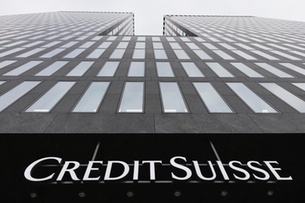The imposing facade of a Credit Suisse building in Oerlikon, Zurich. (Keystone) The Swiss Credit Suisse bank froze some CHF5 billion ( billion) of assets linked to Russia earlier this year in an effort to toe the line with US sanctions levied against Moscow. The bank froze the funds in the second quarter of 2018, according to Reuters, in response to sanctions introduced by Washington in April. The sanctions were imposed to penalize Moscow for its actions in Syria, Ukraine, and its interference in western democracies. The move by Credit Suisse (CS) highlights widespread fears among banks that ignoring US-imposed sanctions could have negative consequences; In 2014, France’s BNP Paribas agreed to pay a record .9
Topics:
Swissinfo considers the following as important: 3) Swiss Markets and News, Credit Suisse, Featured, Julius Baer, newsletter, Politics, UBS
This could be interesting, too:
Dirk Niepelt writes “Report by the Parliamentary Investigation Committee on the Conduct of the Authorities in the Context of the Emergency Takeover of Credit Suisse”
Investec writes Federal parliament approves abolition of imputed rent
Nachrichten Ticker - www.finanzen.ch writes Krypto-Ausblick 2025: Stehen Bitcoin, Ethereum & Co. vor einem Boom oder Einbruch?
Connor O'Keeffe writes The Establishment’s “Principles” Are Fake
The Swiss Credit Suisse bank froze some CHF5 billion ($5 billion) of assets linked to Russia earlier this year in an effort to toe the line with US sanctions levied against Moscow.
The bank froze the funds in the second quarter of 2018, according to Reuters, in response to sanctions introduced by Washington in April. The sanctions were imposed to penalize Moscow for its actions in Syria, Ukraine, and its interference in western democracies.
The move by Credit Suisse (CS) highlights widespread fears among banks that ignoring US-imposed sanctions could have negative consequences; In 2014, France’s BNP Paribas agreed to pay a record $8.9 billion for violating U.S. sanctions against Sudan, Cuba and Iran.
A Credit Suisse spokeswoman said that the bank “works with international regulators wherever
it does business to ensure compliance with sanctions, including compliance with sanctions involving Russia”.
It did not identify the specific owners of the money.
Credit Suisse owned aircraft surrendered by Russian tycoon Oleg Deripaska before the sanctions, and had also lent money to oligarch Viktor Vekselberg, whose involvement in several Swiss businesses was also affected by the latest round of sanctions.
Switzerland is a favoured destination for Russian roubles, with many oligarchs choosing to send their money to the safety of the Swiss Alps: in 2017, around $6.2 billion, or 14 percent of total Russian cross-border outflows, went to Switzerland, according to Russian central bank data.
Other Swiss banks, including UBS and Julius Baer, told Reuters that they also respected international sanctions, but they declined to say whether they had proceeded with similar asset-freezing operations.
Reuters/dosTags: Credit Suisse,Featured,Julius Baer,newsletter,Politics,UBS

